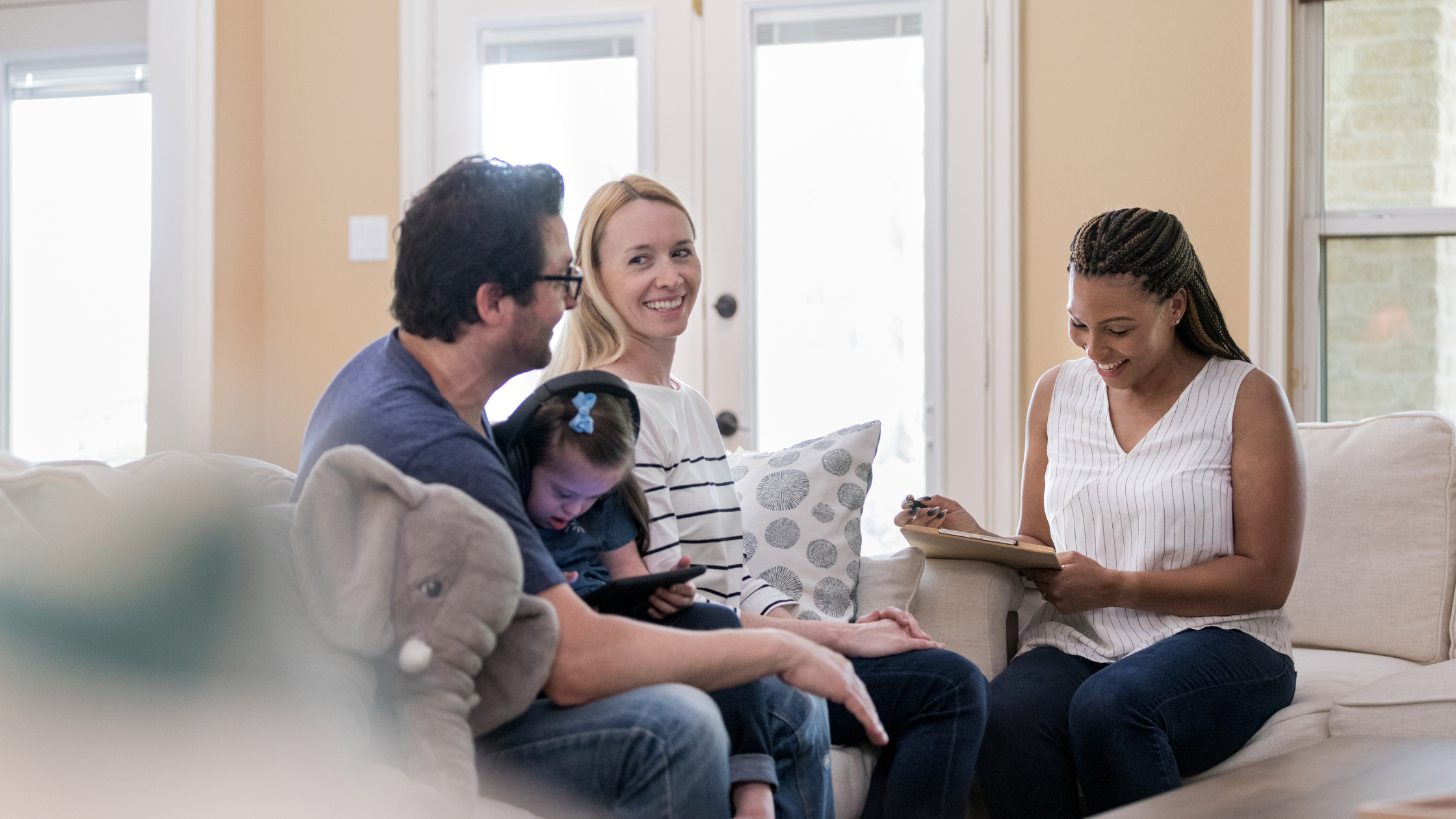Do You Need an NDIS Support Coordinator? Here’s How They Can Help
[Image Description: A family sits on a couch talking to a woman with a clipboard.]
In our recent live webinar, we spoke with Tracey Ginnane, Executive Director at Future Focus Support Coordination, to unpack what support coordination really means - and how it can make a big difference in your NDIS journey.
If you’ve ever felt unsure about how to use your NDIS plan, find the right providers, or manage your supports, a Support Coordinator might be just what you need.
What Is Support Coordination?
Support coordination is extra help for participants who need more than just basic guidance. Around 38% of NDIS participants receive funding for this service.
“Basically, well actually there’s nothing basic about it,” Tracey said. “We help people engage with providers, understand their plan, and track their budgets.”
Support Coordinators work closely with participants to:
Understand what’s in their plan
Find and connect with providers (like OTs, physios, or support workers)
Review service agreements
Monitor budgets and make sure funding lasts
Request plan reviews if needs change
Link with community supports, not just NDIS-funded ones
“We’re not just there to help people access NDIS supports. It’s community supports as well,” Tracey explained.
Three Levels of Support Coordination
There are four types of support coordination that might be funded in your plan:
Level 1 – Support Connection: The most basic level, for people who need some assistance in understanding their plan and finding supports.
Level 2 – Support Coordination: The most common level, for people who need regular help managing their supports.
Level 3 – Specialist Support Coordination: For people with more complex needs, often involving multiple services like justice, education, or child protection.
Psychosocial Recovery Coaching (PRC): For participants with mental health challenges, offering future-focused, recovery-oriented support.
“All of our specialist support coordinators are tertiary qualified—counsellors, psychologists, social workers,” Tracey shared about the Future Focus Support Coordination team.
How Often Will You Hear from Your Support Coordinator?
That depends on your needs—and your funding.
“Some people need to chat every couple of days. Others are happy with a monthly check-in,” Tracey said.
Support Coordinators often have more regular contact than Local Area Coordinators (LACs), especially when plans are new or changing. But the amount of contact also depends on how many hours of support coordination are funded in your plan—some people may only have 12 hours for the whole year, while others might have 96.
In-Person or Remote?
Support coordination can be delivered in person or remotely, and both are equally effective. It really comes down to what works best for you.
“We support people in different states, and that doesn’t affect the quality of support,” Tracey said.
If face-to-face is important to you, it’s worth asking if your coordinator is local and available for visits.
Choosing the Right Support Coordinator
When looking for a Support Coordinator, Tracey recommends considering:
Experience and knowledge of the NDIS
Communication style and how often they’ll check in
Whether they’re local or remote, depending on your preference
Whether they’re part of a supportive team that can back them up
“The NDIS is a tricky beast,” Tracey said. “You want someone who knows their way around it, or has a team that does.”
Do You Automatically Get Support Coordination?
Not everyone does. It depends on your individual needs.
“If you feel you need support coordination, bring it up at your planning meeting,” Tracey advised.
A Support Coordinator can be your guide through the NDIS maze, helping you connect with the right supports, stay on top of your funding, and adjust your plan when life changes.
Want to learn more or share your Support Coordination experience?


